The Class of 2011
They’ve taken different paths to chase their dreams, but these brand-new alumni agree about next steps: They’re up for the challenge.
It would be understandable if members of the Class of 2011 decided there wasn’t much to be optimistic about as they prepared to receive their diplomas and enter the real world.
After all, they were still in middle school when the 9/11 attacks shook us to our core, and the country has been at war ever since. For much of their young lives, the U.S. economy has been on a downslide following the boom years of the 1990s.
But they have also lived through an unprecedented era of change in the way people use technology to communicate, learn, and discover. They were born after the Internet came to be. Their world has always moved at breakneck speed, which might explain why they’re more convinced than the rest of us that things can and will get better.
“I think that the economy — in the state that it is — is actually going to foster a lot of entrepreneurship,” says Quincy Harrison ’11, who made a name for himself with the “Teach Me How to Bucky” song. “I would rather create a job than take a job.”
Forget the conventional wisdom about how to find work, too.
To wit, some of the jobs journalism graduate Sammy Ganz ’11 applied for required candidates to submit part or all of their applications through the social networking site Twitter. “They’re having you tweet in 140 characters why you should be the one they pick,” she says.
UW alumni who came before them may not be able to identify with that, but many no doubt felt as Nicholas Lillios ’11 did. “I don’t want to graduate,” he said during his last semester before commencement. “College is so great, you don’t want to end it.”
But these seven students did end it — or will later this year. They are just some of the new Badger alumni about to make their mark on the world.
Nate Cira
Hometown: Cedarburg, Wisconsin
Majors: Biology, biomedical engineering, molecular biology, biochemistry, microbiology
UW resume highlights: Member of the UW team that engineered “genetic machines” — in this case, to deliver therapeutic proteins to the small intestine to improve digestive health — for an international competition at MIT; volunteer at a local hospital; and tutor with the UW’s Pre-College Enrichment Opportunity Program for Learning Excellence
Favorite UW memory? Winning a top prize at the College of Engineering’s Innovation Days competition for a prototype of a backpack that combined essential pieces of camping gear — a sleeping bag and pad, tent, and chair — into one. “We had a blast making it. We learned to sew. Not a skill set I figured I’d pick up, but I suppose a useful one.”
What’s next? Graduate work in biomedical engineering, with a focus on microfluidics research, which involves manipulating incredibly small amounts of liquid inside of tiny channels. “Engineers are in a unique position with their abilities to manipulate and develop devices. To combine that, as well as the engineering way of thinking, with biology to come up with new living systems excites me.”
Dream job? Research professor. “I see what my professors at Madison do and professors at other schools that I’ve been involved with, like Berkeley … and for me, it’s just ideal.”
What do you consider the most important thing you’ve learned at the UW? “Do things you’re passionate about. … Figure out what you’re interested in, and when you find it, stick with it.”
Sammy Ganz
Hometown: River Vale, New Jersey
Majors: Journalism (strategic communication) and international studies (culture in the age of globalization track)
UW resume highlights: Marketing director for CURB magazine; co-founder, swimmingcows.com, a website focused on marketing, advertising, and public relations news in Madison
Favorite UW Memory? As one of a close-knit group of twenty School of Journalism students who launched CURB, writing a story about a family who lost its six-year-old son in a crash with a drunken driver that was later published on the front page of the Milwaukee Journal Sentinel. “I interviewed them about three weeks after it happened. To be able to help spread their message was definitely one of the most rewarding things I’ve ever done.”
What’s next? Job hunting, with the goal of landing at an advertising or public relations agency
Dream job? To create an industry game-changer, inspired by social media’s impact on the way society communicates
How has the UW prepared you for the real world? Instilling time management and making the most of opportunities. “Being able to choose what you want to get involved in and prioritize to actually go every week … definitely taught me to see both the bigger picture and how to be realistic.”
Most important thing learned in college? How to become a big fish in a big pond. “Being able to find your own way in a really big university like this, finding and having experiences that make you stand out, and getting to know your professors even when you’re in a two-hundred-person lecture hall is a really important skill.”
What excites you about graduating at this time? “In the advertising and PR world, there are so many new opportunities with social media. It’s gone from something that was a niche group … to something that everyone can see is a valuable tool.”
Ali Bramson
Hometown: Verona, Wisconsin
Majors: Physics, astronomy-physics, certificate in computer science
UW resume highlights: President, Physics Club; Undergraduate Research and Mentoring fellow
Favorite UW Memory? Bramson grew up attending UW football games with her father, Todd Bramson ’83, and knew from the start that she wanted to be a Badger. “I always looked at the student section and thought, ‘Oh, I want to be like them. They’re having so much fun,’ and so I love being part of that atmosphere and the school spirit and supporting Bucky.”
What’s next? Applying to PhD programs in planetary science, with plans to focus on imaging the surfaces of planets
Dream job? Working for NASA. “Ever since I was five, I always said I wanted to be an astronaut. And then I realized I didn’t want to go into space, I wanted to study it.”
How has the UW prepared you for the real world? Research internships at a Puerto Rican observatory and the Search for Extraterrestrial Intelligence Institute provided invaluable experiences. “You need to be able to do research. You can’t just be book smart, you need to be able to solve problems.”
Most important thing you learned at the UW? Finding her passion and exploring options through research and in the classroom. “The UW has so much to offer … I took a planetary astrophysics class and said, ‘Man, I really like this stuff.’ ”
What excites you about graduating at this time? “The world’s getting a lot smaller, and some people might be afraid of that, but I think it’s a great opportunity for humans to discover awesome things and make huge advancements.”
Quincy Harrison
Hometown: Bloomington, Indiana
Majors: Business, with a focus on marketing and entrepreneurship, and philosophy
Favorite UW memory: Harrison, who uses the stage name Quincy Kwalae, loved performing “The Coastie Song” at the Orpheum Theatre on Halloween of his sophomore year. But going to the Rose Bowl on the heels of the success of his song “Teach Me How to Bucky” (1.5 million YouTube views and counting) takes the cake.
What do you consider your major accomplishments at the UW? Being admitted to the School of Business was a big deal, but nothing can top the UW playing the video for “Teach Me How to Bucky” on the Camp Randall Jumbotron at the Homecoming football game.
What’s next? Continue working as a social-media strategist for small and start-up companies. “I pretty much want to be a freelance worker, working for a lot of different companies while also working on my own projects. I’d like to be a guy with just a bunch of different projects without having a solid job, as scary as that may be.”
Dream job? To not have a job. “My dream job is to do things and get paid off royalties. So, make a shirt that people buy. Write a book that people buy. Make a couple CDs. I really just like working on a project, doing it right, and reaping the benefits for a while afterwards.”
How has the UW prepared you for the real world? “Being around so many people who are so smart and all actively pursuing that knowledge — it forces me to do the same. It consistently challenges me.”
What’s the most important thing you’ve learned while at the UW? The importance of knowledge. “When people are walking through a blizzard, up a hill in negative-degree weather to get to class, it really drives the point home that nothing stops people from the pursuit of knowledge and to keep on learning.”
Camea Osborn
Hometown: Indianapolis, Indiana
Major: English
UW resume highlights: Under her stage name “The Promise,” performed across the country and abroad with the First Wave Hip Hop Theater Ensemble; released first CD, Promise Kept, in August 2009; studied abroad in Ghana
Favorite UW memory? Attending R&B singer Janelle Monae’s concert on the Memorial Union Terrace. “It was a pretty nice night … everybody’s on the Terrace. There’s good music. It was just a really good night.”
What’s next? Complete a teacher-certification program, earn a PhD in educational theater
Dream job? Work with children as an arts educator, through a school or organization
How has the UW prepared you for the real world? The rigor of the academic work. “It’s very intense, so when I get into the real world, I’ll know how to manage and finish what I start.”
How are you feeling about the economy and what it means for your career prospects? “It’s scary. Because I’m a person who is interested in arts and the nonprofit sector, I’ve always known I wouldn’t make a lot of money … but, on the opposite side, as an artist you know how to multi-task and do a lot of things at once.”
What excites you about graduating at this time? “Our generation is alive at the best moment in time, because we can literally go anywhere and do anything. … I think that is extremely exciting.”
Nicholas Lillios
Hometown: Northbrook, Illinois
Majors: Political science and biochemistry
UW resume highlights: One of just sixty undergraduates nationwide selected as a Truman Scholar, an award for students committed to careers in public service. Doing breast cancer research at the UW’s McArdle Laboratory for Cancer Research, focusing on a subtype of the disease with no known treatment. “I want to work on cancer, because I think it’s curable.”
Favorite UW Memory? Traveling to the Rose Bowl was “incredible” and a “good cap-off” to his senior year. But Lillios has a lot of nostalgia for his early days on campus, too. “My first year here was really sweet, because you’re seeing brand-new things that you’ve never really been exposed to.”
What’s next? A Truman-Albright fellowship in the Office of Rural Health Policy, part of the U.S. Department of Health and Human Services in Washington, D.C., followed by medical school and residency
Dream job? An academic post, including lab research, with time away to work at the National Institutes of Health or Centers for Disease Control and Prevention. “I want to use science to help affect policy. If we have more people who are educated in these technical matters, I think it could result in better policies for our country and the world.”
How has the UW prepared you for the real world? Leaving the UW as a well-rounded person. “You get to experience life in all different facets. You get exposed to so many different people who don’t necessarily share your same viewpoint, or aren’t the same major as you, or don’t care about science, but you get to talk to them. I think at a lot of other places that are smaller, you don’t get that perspective.”
Most important thing learned here? How to approach a problem. “When you work in a lab, you’re in a team and you’re constantly being challenged to find better ideas.”
What excites you about graduating at this time? “We’re advancing so fast … our ability to run experiments that once took us a long time, our computing power is just ridiculous. We’re able to synthesize so much information through this technology that it’s almost as if we’re knowing what’s happening as it happens.”
Asad Asad
Hometown: Milwaukee, Wisconsin
Majors: Political science and Spanish; certificate in global cultures
UW resume highlights: One of only twenty U.S. undergraduates selected as a 2010 Beinecke Scholar; Greater University Tutoring Service (GUTS) program coordinator; study abroad in Madrid, Spain
Favorite UW Memory? Standing on the stage and shaking President Obama’s hand during his visit to Library Mall in October 2010. “I just found it an absolutely incredible experience to be a part of an institution that’s so politically active.”
What’s next? Starting a graduate program in sociology at Harvard. Asad, the son of Palestinian immigrants, grew up in a vibrant Arab-American community and is interested in questions of integration and assimilation. “You see an Arab community that’s quite fragmented by generation. The older generation says, ‘Oh, no, no, no, no — we can’t be American,’ while the younger says, ‘How can we not be American? We’re all here.’ ”
Dream job? To live abroad, speak foreign languages every day — whether Arabic or Spanish — and play a role in U.S. immigration policy, inspired by his parents’ story. “How can we make the process more humane and understanding of these people? My goal would be to influence policy in that arena while also helping people to achieve that dream.”
How has the UW prepared you for the real world? Beginning to work at GUTS after looking for an “outside of the ordinary” part-time job; eventually becoming academic match coordinator, leading the effort to find tutors and groups for more than five hundred students a semester; and along the way, learning valuable lessons about “maintaining your patience and learning to say no when you have to say no.”
Most important thing learned here? The value of communicating clearly and concisely, as taught in political science professor Ken Goldstein’s course for which students research and find guests for the Big Ten Network public affairs program, Office Hours. “I find myself thinking about how to go about saying and doing things more efficiently and quickly, because nobody wants to hear like every other word.”
How are you feeling about the economy and what it means for your career prospects? “The economy is rebounding, so it’s not as bad as it used to be. I’m looking at the glass [as] half full, as opposed to half empty.”
Jenny Price ’96 is senior writer for On Wisconsin. Sam Oleson ’11, who was an editorial intern for the magazine while an undergrad, says his dream job is writing for ESPN.
Published in the Summer 2011 issue
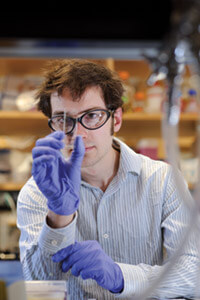
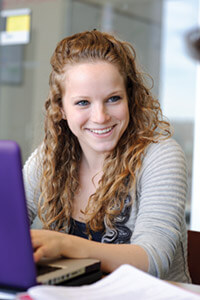
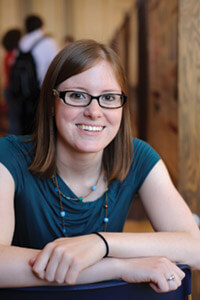
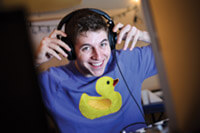
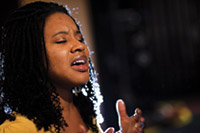
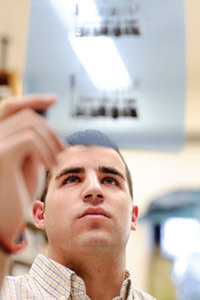
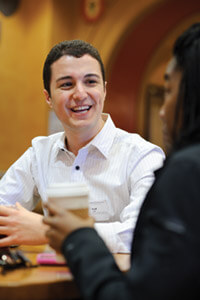
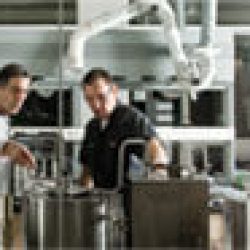
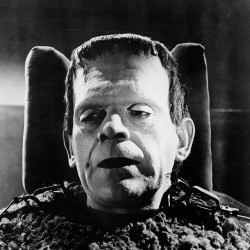

Comments
No comments posted yet.